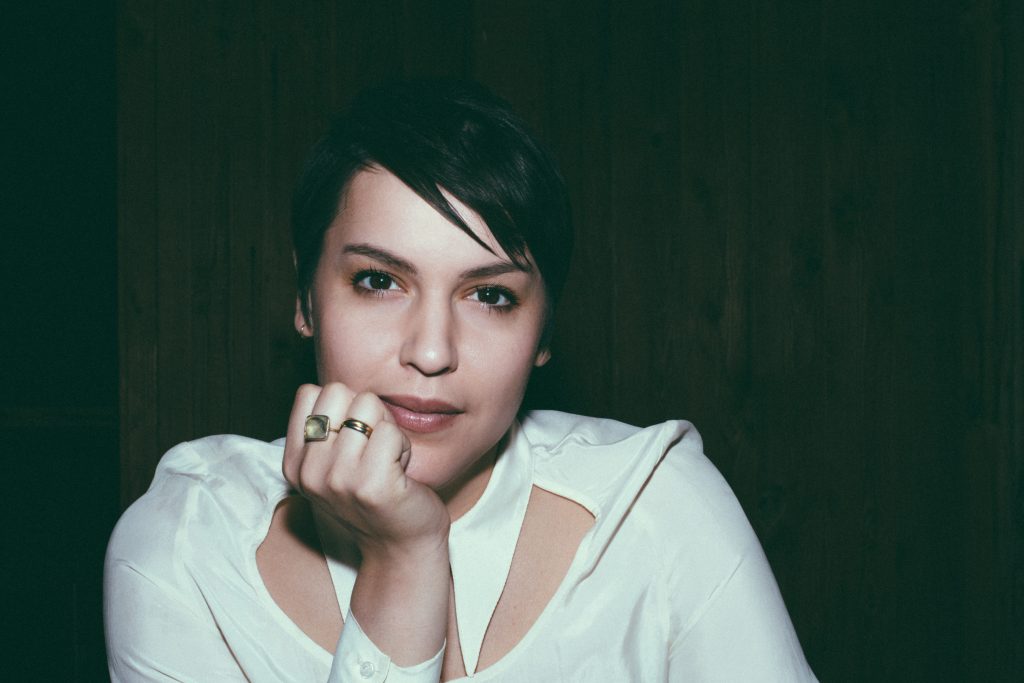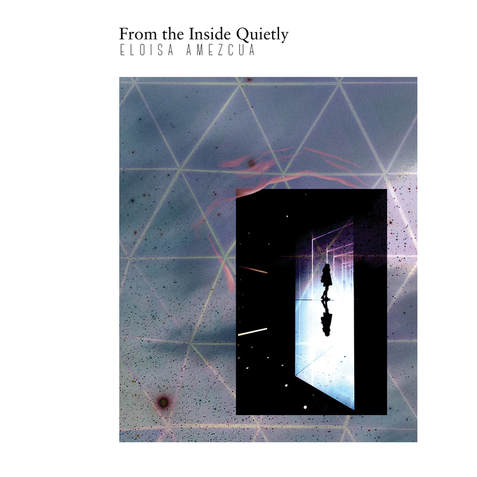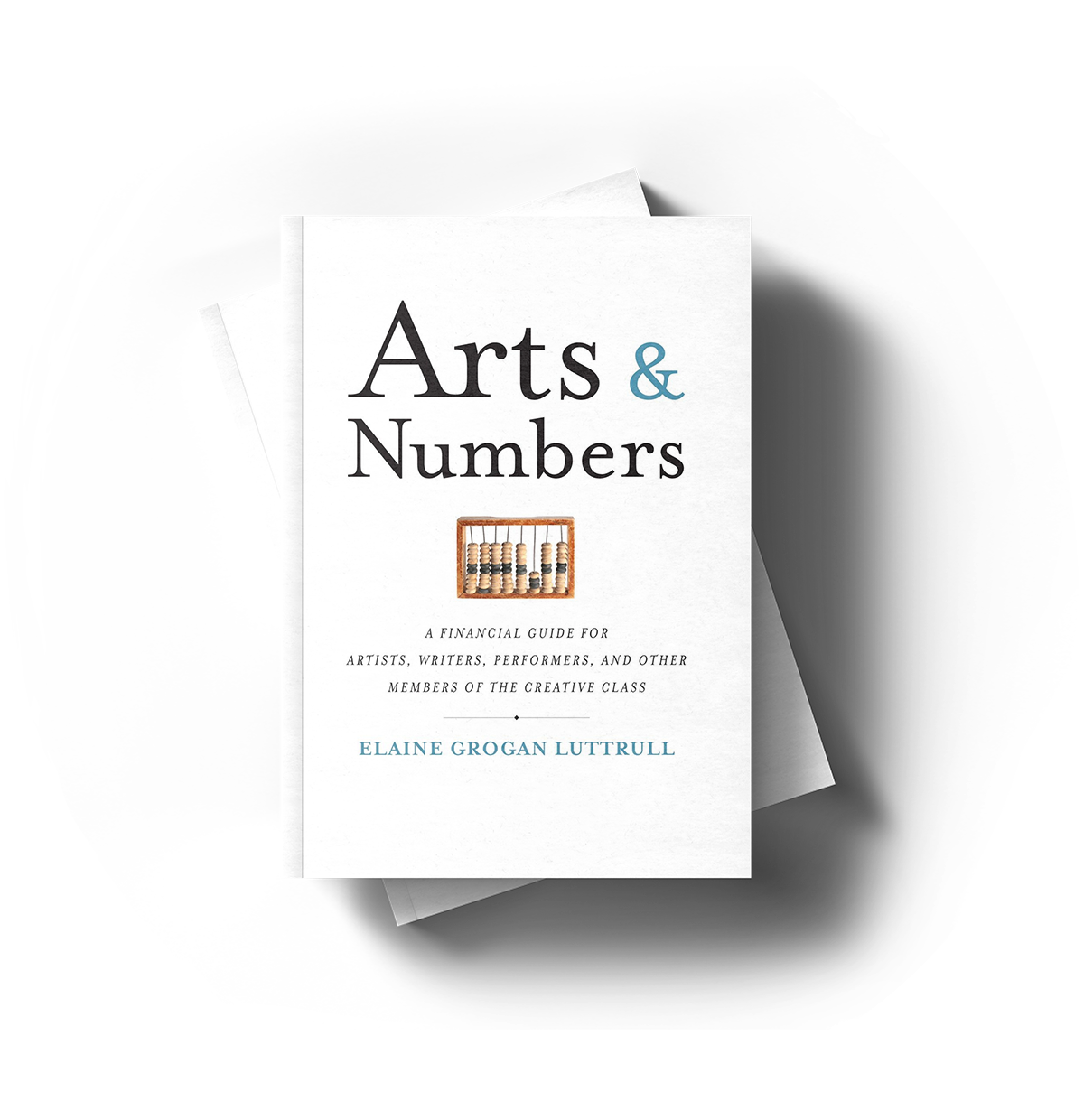February 11, 2019 • Open Account
In Open Account, Hannah Stephenson profiles artists, sharing their financial and creative memories, successes, and challenges.

As a poet, Eloisa Amezcua’s writing is unwavering, fearless, infused with a grounded tone and insight into perception, identity, and role. As the founder of Costura Creative, a booking agency for writers, her poetic characteristics carry over. She manages a roster of twelve award-winning, in-demand poets, who publish beautiful books, draw large audiences, and have devoted fans (to name a few—sam sax, Franny Choi, Julian Randall, and Alison C. Rollins). “Both personally and professionally, I’m always trying to convince people that poetry has value,” Amezcua explains.
She describes her work as a booking agent as serving as “the go-between for artists and institutions trying to bring art to their communities,” seeking out opportunities and replying to requests, and taking care of all administrative details (any paperwork and contracts). And as we know as artists and writers, negotiating fees and logistics can be notoriously awkward and convoluted.
Costura Creative was born in the spring of 2018, after Amezcua had spent two years as the personal assistant to a writer. Before that, she’d worked in higher education and healthcare, keeping her own poetry and her profession independent from one another. She shares, “I always thought the two things had to be separate, and it was useful to have a distinct separation between creative and professional work because it allowed me to focus on each and grow. After that, I found an entry into combining the two. My creative work is still separate from my professional work, but there’s overlap in the communities that the work moves through.”
Since its inception, Costura Creative has quickly flourished. Amezcua and I spoke about making financial and creative choices, the necessity of knowing your strengths and worth, and how essential it is for artists and organizations to value intersectionality.
On an early money memory
“I was younger than 7, maybe 6. We were at a fair type of event in Mexico. My parents gave me money to ride one of the rides. My sister and I were walking to the ride, I had the money in my hands, and someone took it from me. I didn’t say anything to anyone about this.”
“Today, I feel a sense of needing to hold onto and be protective of money. But I also need to DO SOMETHING with money before someone takes it. I need to make a decision about it before I don’t have it to make a decision about. The decision isn’t to spend it or not, but ‘Where am I putting this? How am I using it?’ I’m indecisive in some parts of my life, but when it comes to finances, I’m very decisive. I think our parents also have a lot to do with how we view money and handle it. My parents work very hard but also enjoy the fruits of that labor, and I think that this is very important, that there is a balance.”
On defining value with writers and artists
“One thing I’m really proud of is having conversations with each of my artists about what they thought their standard rates should be. A few of the artists were way off, way under. Grossly undervaluing themselves. And these were all female artists. Sure, speaking experience, books, awards—all of this factors into what an institution can budget for a person to come in. But talking to artists about what their rates COULD be was very eye-opening.”
“Many of these artists [who undervalued themselves] had never talked with another female artist about this. There needs to be some transparency among writers about pay and value. Too often, as poets, we’re told that any money is good, because we don’t see a lot of it. But that doesn’t mean that what we’re being offered is what we’re worth.”
On negotiating with institutions on behalf of artists
“No one talks about money. So institutions will contact me with every specific EXCEPT for budget. It then becomes my job to ask what they can offer. But it’s really important for institutions to know that I expect my artists to get paid. It becomes my job to discuss money right away. That doesn’t mean that the artists aren’t willing to donate time and energy. But I expect my artists to see some type of compensation.”
“Something that’s really important for my artists on the roster is being intersectional. Being of multiple identities broadens the audience, broadens the sources for who might be willing to fund an artist. If an English Department wants someone to come speak, and they don’t have much funding, maybe there a Latinx group on campus that might be able to help. Or I suggest reaching out to, for example, Gender Studies Departments. Funding is often broken up between different groups, but it’s to everyone’s benefit (host organization, artist, and audience) to partner on this. And then it’s great, because that artist gets to reach an entirely different group of students. Which is the goal!”
Eloisa’s Tips
“Submission fees really add up. Meticulously keep track of how much you are spending on submissions of your work, and how much you are getting paid if you are. I’m a Virgo—I love spreadsheets. I keep track of all of this. I love using the money I make on poems to submit those poems. Poets can easily spend hundreds of dollars submitting to book contests…I think if you’re spending hundreds of dollars to get published you should try to MAKE hundreds of dollars. Cycling your money to replenish the well is a great strategy, when you are just starting out, particularly.”
“Another strategy or tip: keep in mind where your submission money is going and how it’s being used. Is the place that you are submitting to transparent about what your 35 dollar fee is going to? What is it going toward?”
“I’m a big fan of QuickBooks. It was important for me to use early on—I never imagined myself being a business owner. Didn’t take a single business class. But it was also important for me to not try and kid myself about this. I’m not trying to do my own accounting—that’s not my background. There are people out there who do this for a living. Knowing your limits and not trying to do everything yourself, but passing things off to people who can do it right is very important.”



